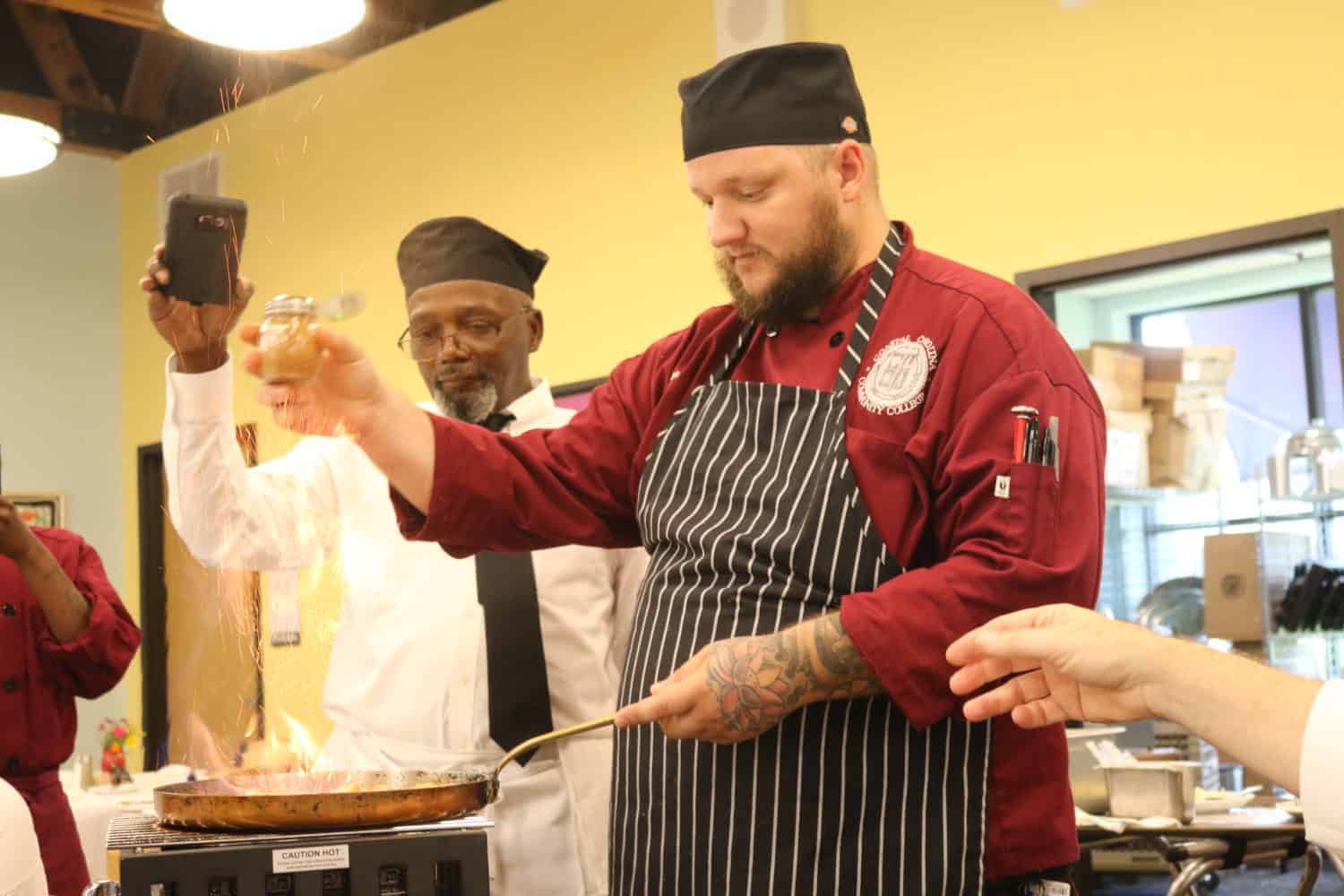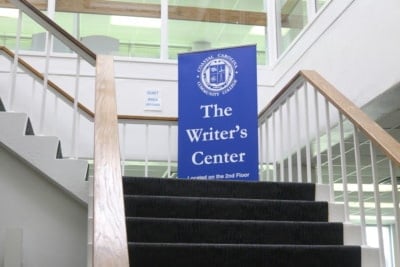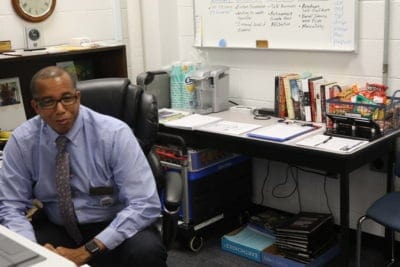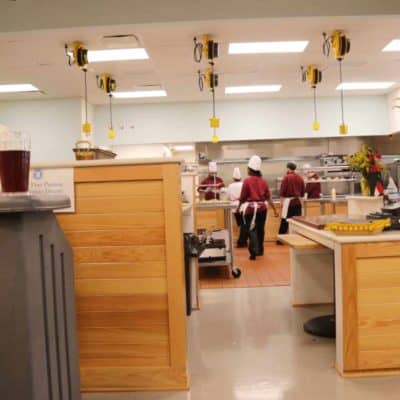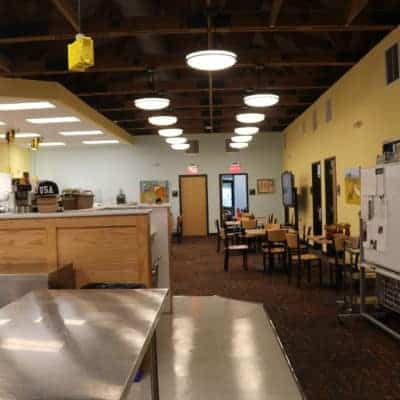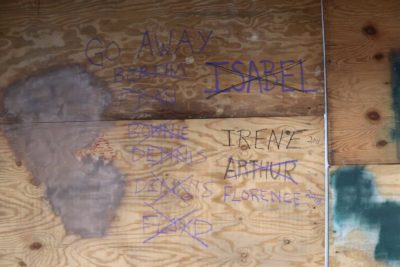When Coastal Carolina Community College President David Heatherly thinks about the challenges his students face, circumstances outside the classroom come to mind first.
“I do think, when we find that students are not necessarily successful, it doesn’t have so much to do with academic potential,” Heatherly said. “It has to do with life getting in the way.”
Sometimes that means financial problems, or family disputes, or health issues, Heatherly said. With two major military bases within Coastal Carolina’s service area, Marine Corps Base Camp Lejeune and Marine Corps Air Station New River, students are often dealing with the stresses of transitioning from years of service to an academic environment — and a new chapter of life.
Coastal Carolina prides itself on its ties to the military community as well as its high performance outcomes. Last year, the school was one of two North Carolina community colleges that scored at least “above average” on all state measures. Heatherly said the staff’s commitment to thinking outside of the classroom has made a large impact.
“We find that those discussions centered around what we can do to best support students outside the classroom really enhance their success or the probability of success in a much more meaningful way.”
Over the last two years, that commitment has meant the formation of a team of five student success coaches. The idea was originally Sharon McGinnis’s, the college’s vice president for instructional effectiveness, research, and innovation. She said she thought the model, which she saw helping student athletes at universities, felt right for the college’s student success initiative, which had previously focused on professional development and mentoring for faculty.
“Their focus is supposed to be what they can do to help that student be successful academically on our campus,” McGinnis said.
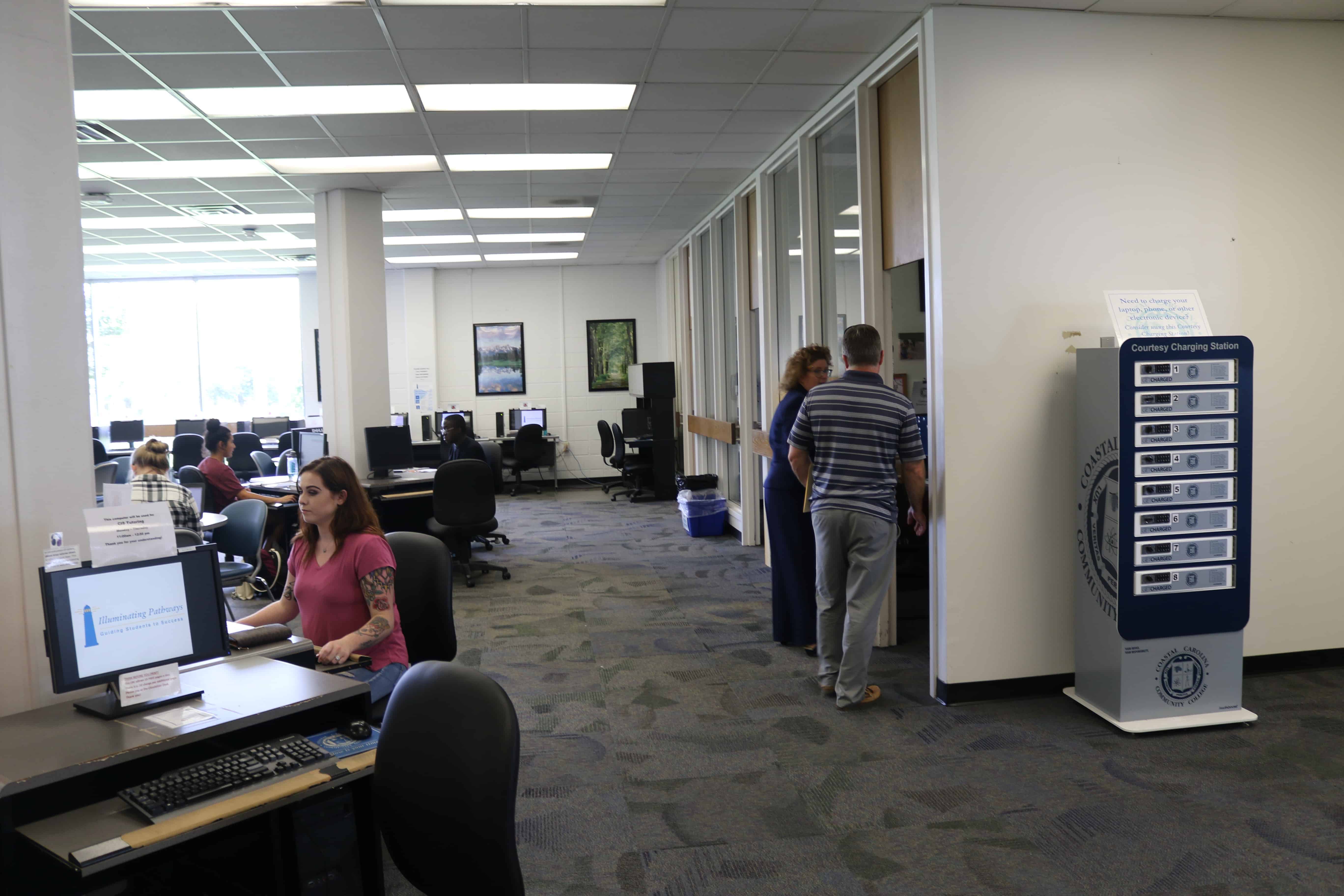

Each coach has a specific student population on which he or she focuses. One interacts with students looking to transfer to four-year universities, one helps students in career and technical courses, one supports high school students who are dual enrolled or attend the early college, one helps students who are at-risk based on grades or first-generation college student status, and one works with veterans.
Faculty members often refer students who they realize are struggling to a coach, and the coach figures out who would be the best in the team to support the student. Sometimes that is based on categorized needs like the ones above, and sometimes that is based on relationships and personalities. The first step, all five coaches agreed, is letting the student know you care.
Coaches often teach students skills like stress management, scheduling, organization, finding tutoring or career counseling, and navigating finances. Beverly Goodson, who has worked with adults looking to earn their GED certificates for 25 years, said she has been surprised to find that students entering community college face a lot of the same obstacles her former adult students faced.
“It was shocking to come over here to the curriculum side and discover that students have the same issues if not more… their lack of a background, their depth of knowledge, their depth of understanding what college was supposed to be like, the lingo, the language, learning to be their own advocate, not seeking out resources, not asking for help, not understanding time management,” Goodson said. “Just so many things that were obstacles that would make them walk right back out into the parking lot.”
Goodson said she feels the coaches’ impact is tangible in students’ lives.
“I think that every one of us on an hourly basis is making a difference if you want to know the truth — a half-hour basis,” she said. “It could be something as simple as, ‘I just failed my CIS 110 exam and I need help.’ And I’m like, ‘Ok I’m going to walk you down four doors, and I’m going to watch you put your name on the door to sign up for a tutor.'”
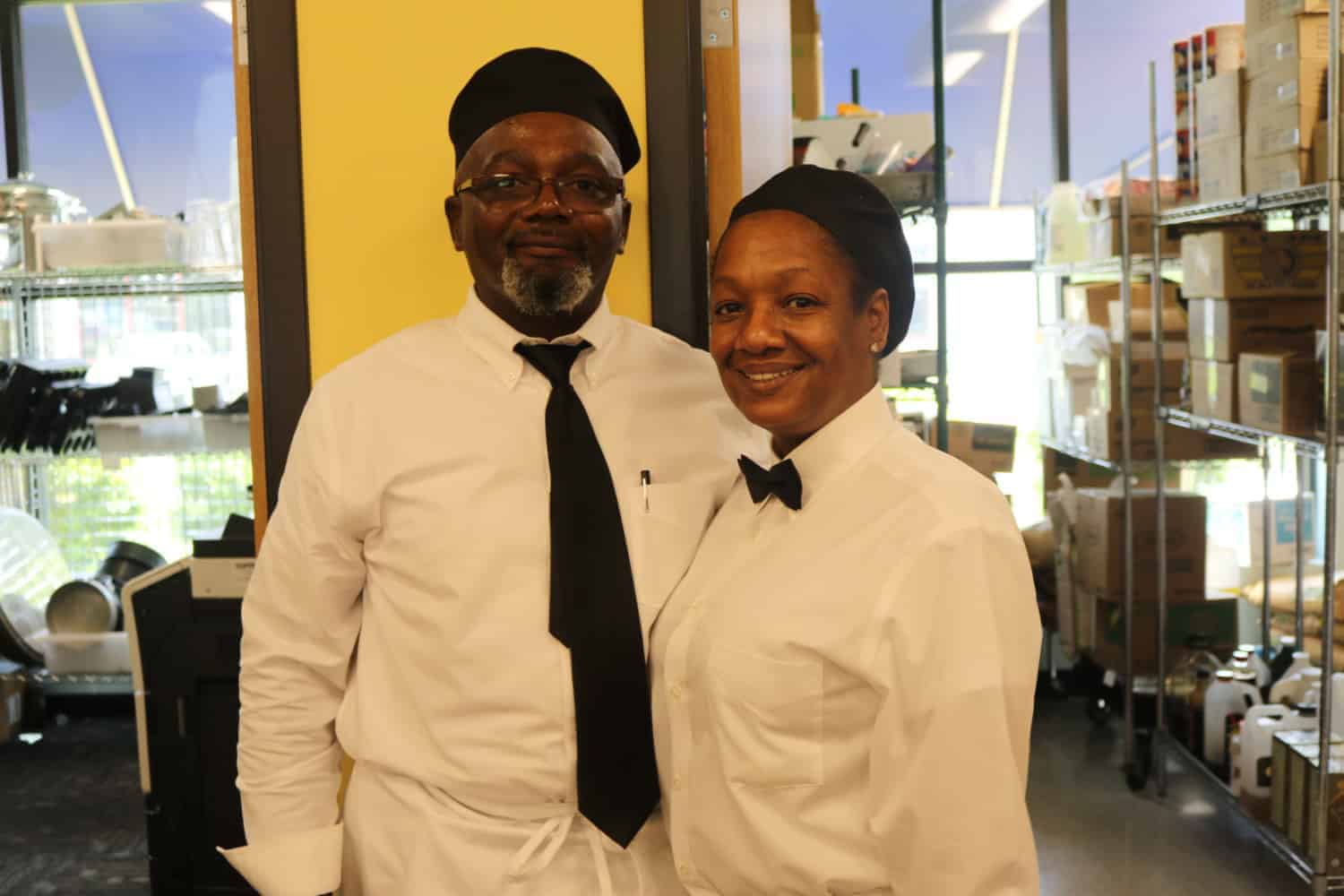

The college recently hired Deborah Lucas, the veteran success coach, due to the large military presence on campus and in the community. Lucas said roughly a third of the student population is comprised of veterans.
“One of the biggest things veteran students feel when they’re encountering the transition to academia is feeling like they don’t belong and feeling like they’re not supported,” Lucas said. “And that is usually, many times, compounded by physical and mental health concerns. There is support in the larger community, but navigating some of the VA paperwork, medical care, those types of challenges are pretty intense for some veterans. VA financing of education benefits is another one.”
Coastal Carolina’s culinary program started four years ago and moved into a renovated Fuddruckers a year and a half ago with funds from the Onslow County Board of Commissioners. Heatherly said the commissioners’ support has made infrastructure improvements possible when state funds are limited. For Russell Meadows, who is in his first year of the culinary program and was in the military for more than 20 years, the program provides a more peaceful environment than a traditional classroom. His wife and classmate Monique Newton-Meadows said his anxiety has been a lot lower since starting the program.
“This has been amazing, especially for Russell because of … everything he went through being a veteran,” Newton-Meadows said. “It’s a smaller setting, and there’s other veterans here as well to make him feel comfortable and safe.”
The two-year program has not one but two married couples enrolled. James and Bajia Connelly are both veterans and second-year culinary students. They test the new recipes they learn on their three kids, who James said have the ultimate say on whether or not the food is any good. They’re hoping to travel the country in a mobile home and start a pop-up restaurant when they graduate, but their ultimate goal is to open a restaurant and farm to grow their own ingredients sustainably.
“We really want to help other veterans, too,” Bajia said.
